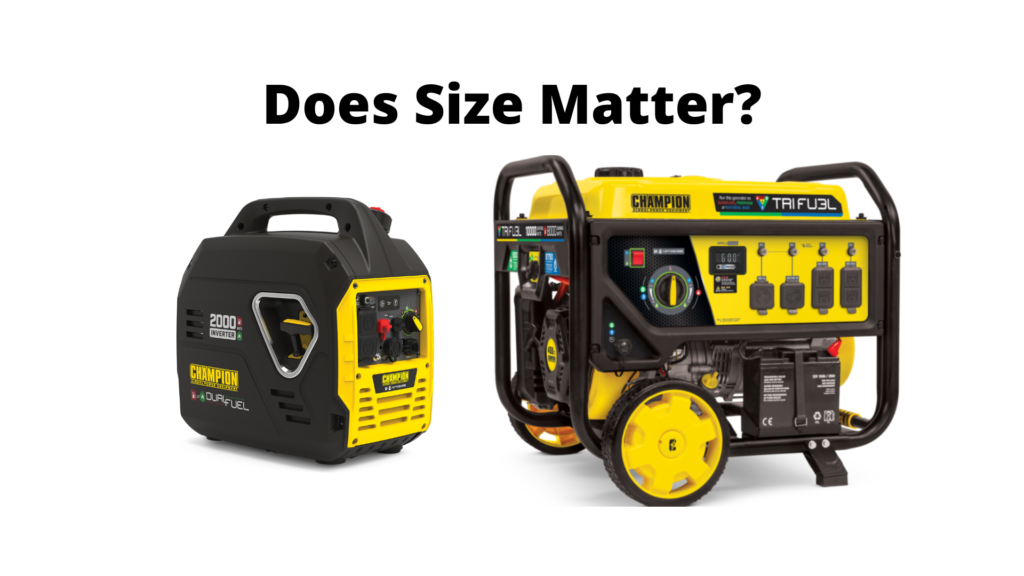Choosing the Best Generator for Your Home Size
Introduction: Selecting the right generator for your home size is essential to ensure uninterrupted power supply during outages or emergencies. With various options available in the market, it’s crucial to understand your power needs and choose a generator that can adequately meet them. This guide will help you navigate through the process of selecting the best generator for your home size.

Assess Your Power Requirements & Calculate Total Wattage Needed
Begin by assessing your home’s power requirements. Identify essential appliances, electronics, and systems that you would need to power during an outage.
Make a list of these items and determine their wattage requirements. Consider both the starting (surge) and running (continuous) wattage for each appliance.
Total the wattage requirements of all essential appliances and systems to determine the total power needed during an outage.
Add a buffer of 10-20% to account for any additional appliances or unexpected power needs that may arise.

Determine Generator Size
- Based on your total wattage calculations, determine the size of the generator needed to meet your power requirements.
- Generators are typically categorized by their wattage output, ranging from portable generators (1,000 to 10,000 watts) to standby generators (10,000 to 20,000+ watts).
- Choose a generator size that comfortably accommodates your total wattage needs without operating at full capacity.

Consider Fuel Type and Availability
- Generators can run on various fuel types, including gasoline, propane, natural gas, and diesel. Consider the availability and accessibility of fuel options in your area.
- Evaluate the advantages and disadvantages of each fuel type, such as cost, storage requirements, and shelf life, before making a decision.

Portable vs. Standby Generators
- Decide whether a portable or standby generator is more suitable for your home size and needs.
- Portable generators are versatile and can be moved around as needed but typically provide lower power output. They are suitable for powering essential appliances during short-term outages.
- Standby generators are permanently installed and connected to your home’s electrical system. They automatically activate during power outages and can provide sufficient power to keep your entire home running smoothly for an extended period.

Consider Features and Accessories
- Evaluate additional features and accessories offered by generators, such as electric start, multiple outlets, noise reduction technology, and remote monitoring capabilities.
- Choose features that align with your preferences and convenience, enhancing the usability and functionality of the generator.

Research Brands and Read Reviews
- Research reputable generator brands known for their reliability, durability, and performance.
- Read customer reviews and testimonials to gain insights into the real-world experiences of users with different generator models.

Consult with a Professional
- If you’re unsure about which generator size or type is best suited for your home size, consult with a qualified electrician or generator specialist.
- A professional assessment can help ensure that you select the right generator for your specific needs and circumstances.
Conclusion: Choosing the best generator for your home size requires careful consideration of your power requirements, fuel preferences, and generator features. By assessing your needs, calculating total wattage, and researching available options, you can make an informed decision that ensures reliable backup power during outages or emergencies. Prioritize quality, reliability, and compatibility with your home’s electrical system to invest in a generator that provides peace of mind and protection for your household.
